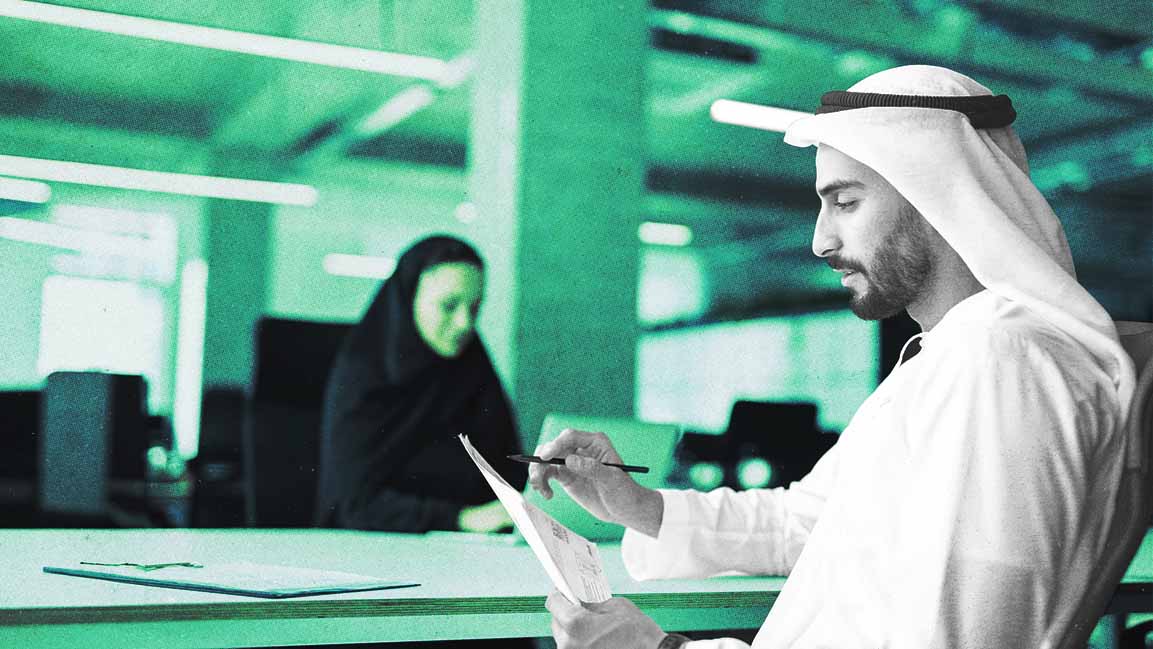- | 10:00 am
Here’s how to foster a positive work culture
Work-life balance remains a distant concept, but these expert solutions could help

Recall the last time you canceled a plan with your friends because of work. The boundaries between work and personal life blur as people struggle to manage the competing demands of work and home.
According to psychologist and co-founder of the Smash Room, Hiba Balfaqih, “Employees are experiencing higher levels of stress due to the pressure to always be available.”
Workers face pressures such as meeting deadlines, conflict with colleagues or customers, and emotional burnout due to chasing targets and navigating organizational structures and cultures.
Experts tell us how we can make time to recharge, manage stress and boost our morale and positivity at the workplace.
WORK-LIFE CONUNDRUM
Workplace stress has shifted from being primarily physical to having a more mental and emotional impact, notes Dr. Lucy Bolton, Assistant Professor in Business Psychology at Heriot-Watt University Dubai.
While work-life balance, touted as a solution, remains a distant concept. Balfaqih recommends that employees communicate their boundaries and limitations to their bosses, prioritize self-care and time for activities that help them relax and recharge, and provide solutions to improve productivity without sacrificing well-being.
“The culture of overworking can put undue pressure on employees to conform to this behavior, making them feel guilty for taking time off or prioritizing their personal life,” says Dr. Bolton.
FROM PRESSURE TO POSITIVITY
Emphasizing positive work culture’s role, Dr. Bolton says that long work hours, job insecurity, and high-pressure work environments can lead to increased levels of stress, anxiety, and depression can significantly alter an individual’s personal life.
“Employers and employees have a responsibility to address the negative impact of work-related stress on someone’s personal life,” she says.
Employees must advocate for changes in workplace policies that support work-life balance.
“Seeking support from family, friends, or mental health professionals can also help to manage work-related stress that spills over into personal life. Employees need to recognize that taking care of their well-being is essential and that it is okay to prioritize personal life, even in a culture that values overworking,” says Dr. Bolton.
“It’s the collective responsibility of employees and employers to create a supportive and healthy work ecosystem,” she adds.
THE RULEBOOK OF POSITIVITY
Focusing solely on developing an individual’s resilience and adaptability skills cannot address burnout.
Dr. Bolton says organizations should aim to develop a culture where employees can rest and recharge to be more efficient. With the evolved work norms, options like working from home can be convenient and have many perks, particularly overcoming the risks of a presenteeism culture.
“Employees must switch off to avoid feeling that work is never-ending through planning their tasks and limiting their work hours,” says Dr. Bolton.
She says that individuals who perceive themselves as superhuman tend to have a constant workload due to their tendency to sacrifice free time, such as late nights, weekends, and holidays to demonstrate their abilities. These individuals often find it hard to ‘switch off’, and through self-awareness, identifying such patterns and seeking support is crucial to attaining the required work-life balance.
Redesigning work to support individual learning and growth is crucial for employers to take a systemic approach.
“Organizations must re-evaluate systems, policies, processes, and incentives, and redesign job expectations, work, and team environments,” says Dr. Bolton. “These should then be reviewed regularly, allowing ‘check-ins’ with employees and providing a more healthy and positive work culture.”







































